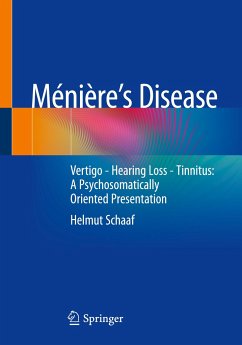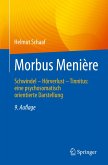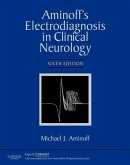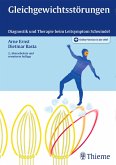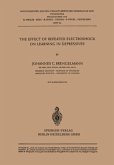This book summarizes the concrete, practical issues surrounding Ménière's disease with vertigo, hearing loss, tinnitus, and offers perspectives and recommendations for affected persons, relatives, and medical and psychotherapeutic practitioners.
In the course of Ménière's disease, in addition to the organic impairment anxious observation with increasing restriction of movement space, insecurity and helplessness, and even occupational disability and depressive development may occur. Nevertheless, help and support are possible, how is shown in this first English edition, which was translated from the updated 8th German edition with the help of "Artificial Intelligence" (DeepL).
Even though this was subsequently carefully proofread and adjusted by the author, it may be that much of it sounds "bumpy" - perhaps as is fitting for the disorder, certainly as is fitting for the fact that the author is not a native speaker of English. Nevertheless, the facts are described accurately.
From the contents
Information on current findings in dealing with Ménière's disease -
Improved medical options and limitations -
Refined psychosomatic approaches to dealing with the disease.
This book is a translation of the original German 1st edition Morbus Menière by Helmut Schaaf published by Springer Fachmedien Wiesbaden GmbH, part of Springer Nature in 2017.The translation was done with the help of artificial intelligence (machine translation by the service DeepL.com). A subsequent human revision was done primarily in terms of content, so that the book will read stylistically differently from a conventional translation. Springer Nature works continuously to further the development of tools for the production of books and on the related technologies to support the authors.
In the course of Ménière's disease, in addition to the organic impairment anxious observation with increasing restriction of movement space, insecurity and helplessness, and even occupational disability and depressive development may occur. Nevertheless, help and support are possible, how is shown in this first English edition, which was translated from the updated 8th German edition with the help of "Artificial Intelligence" (DeepL).
Even though this was subsequently carefully proofread and adjusted by the author, it may be that much of it sounds "bumpy" - perhaps as is fitting for the disorder, certainly as is fitting for the fact that the author is not a native speaker of English. Nevertheless, the facts are described accurately.
From the contents
Information on current findings in dealing with Ménière's disease -
Improved medical options and limitations -
Refined psychosomatic approaches to dealing with the disease.
This book is a translation of the original German 1st edition Morbus Menière by Helmut Schaaf published by Springer Fachmedien Wiesbaden GmbH, part of Springer Nature in 2017.The translation was done with the help of artificial intelligence (machine translation by the service DeepL.com). A subsequent human revision was done primarily in terms of content, so that the book will read stylistically differently from a conventional translation. Springer Nature works continuously to further the development of tools for the production of books and on the related technologies to support the authors.

